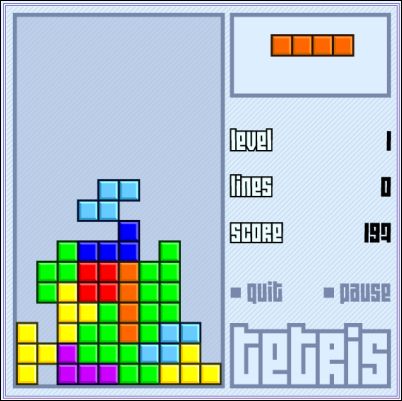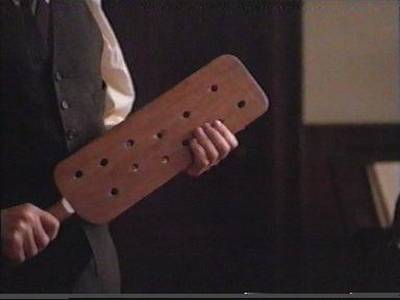In this post the the no-save system hinted at in the previous post will be discussed by going over various systems and see how they apply to horror games. I also want to point out that as in the last post, saving means the type of save that determines where the player starts after failure (death) and not progress recording. Also note that I will, because of reasons found in the previous save post, consider that weak negative failure effects (like quick save) reduce the scare factor.
Death is final

This type of save can be found mostly in rogue games like Nethack and means that if you die, you will loose all progress and have to start over. Pretty much all games utilializing this system is based on random generation of levels, so when one starts over the game does not play out the same as last time. It also has a concept of levelling yourself instead of the game character meaning that by using knowledge obtained from the previous session one can make it longer in the next.
Would this kind of saving work for horror game? To my knowledge it has never been tried and I think the main reason for this is the random aspects. Horror require elaborate setups with environments, enemies and events something that is not (yet?) possible with randomly generated maps (at least one horror game use it though). The story also tends to be important in horror games and procedurally generating that at the start of each session would be quite some task.
The idea of only having one life has lots of appeal for the horror game designer, as actions made would really matter and the prospects for instilling fear are very tempting. However, the requirement of having to randomly generate content does not lend itself very well to horror games and this type of system might only be workable for some really short and experimental game.
Teleportation

In this system the player is teleported back to a certain spawn position upon death, often combined with some other punishment (lost of currency, experience points, etc). Some examples: In Bioshock the player is teleported without any sort of punishment and in Diablo 2 the player drops all inventory at the place of death. As seen in the two examples, the degree of punishment can differ quite a bit. The placement of spawn points also changes the amount punishment a lot.
The biggest problem with this kind of system is that unless the punishment is quite large, it is either a very accessible system (making death meaningless, like in Bioshock) or one that can lead to frustrating (like Diablo). Thus it seems like if one does not pose some large negative effect upon teleportation it is not ideal to retaining atmosphere and creating fear. However, if the punishment is too harsh it will be very hard to balance the game, for example if the ammunition is lowered too much it might be impossible for the player to progress.
Mini game

The idea of this kind of system is that the player is punished by some kind of minigame before being able to return to the normal game. Prey is one game that uses this system and forces the player to shoot a certain amount of spirits before returning to play. At first glance the basics of this system seem very solid – a player never has redo any gameplay section and is always in the game (meaning no immersion breaking).
After “dying” a few times the problems start though. Whatever mini game the player is forced to play it will always detract from the main game and will never be as fun as the “real thing”. This will lead to frustration and immersion breaking. If on the other hand the mini game is very short and simple, death will (like the accessible teleportation) become too easy and scariness be lost.
Immortality

Would it be possible to make a horror game where the player never dies? As discussed in an earlier post on combat, it is very possible to do so and there exist many examples of such games. All of these games build the scariness from atmosphere and use no game mechanics to inforce it. Would such mechanics be possible in a game with an immortal character though? One way to do it might be in a Sim City kind of way where ones choices will have consequences later on. If bad decisions are made the player might be put in an unwinnable state (turning into a kind of “death is final” game) or simply be denied certain plot points or items. This is highly experimental though and I know of no games where it is implemented.
Rebirth

A variation on the “death is final” system is to add more playable characters to the mix. If one character dies the game continues with the remaining characters until all are dead. Although it might sound very similar to the “death is final” type, there is a large difference – a death of a character might be intentional and it might even be required for all characters to die in order to complete the game. In such a game “completing” takes on a new meaning as it would require the story to branch and have multiple endings (unless each death is scripted which defeats the purpose). This could in turn lead to all sorts of exciting new gameplay and it might be possible to induce emotions like sorrow to a degree impossible in other kind of games.
As with all approaches, is it not without problems. Rebirth requires the designer to manage several outcomes out of different situations and considering one story is often hard enough, this is not an easy task. If it should be possible to always complete game, then the situations where death can happen is also limited, especially if a death needs to branch the storyline. Given an appropriate story these problems are not impossible to overcome though and might work in some kind of Cube-like setup.
Heavy Rain is supposed to have this type of system and although I have my doubts of the game, this aspect will be extremely interesting to see how it turns out.
Physical punishment

Finally one could induce real physical pain to the player upon failure. Knowing that a couple of thousand volts might be put into ones body will definitely make one extra careful when exploring. There are already games where physical pain play a part of the game and it seems to me like it would fit perfectly for a horror game. Not sure if I would like to try it though (beta testers would be harder to find for sure!).
On a more serious note, this kind of system would not be impossible to implement without hooking the player up to a torture machine. Simply displaying disturbing visual and auditory effects might act as enough punishment, but just like with mini games it might end of frustrating instead of adding to the atmosphere. I know of no games that use this but games like The Path and Punishment might be considered close.
What are your thoughts on games without saving? Do you think any of these could be used to increase the scare factor or is saving the best way for horror games? I am also interesting in hearing if I forgot to mention any systems.